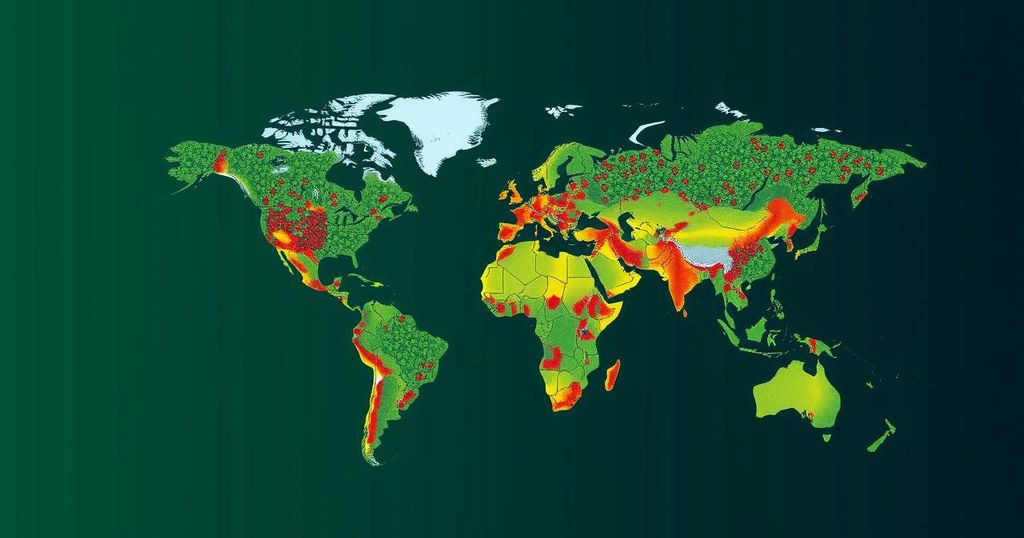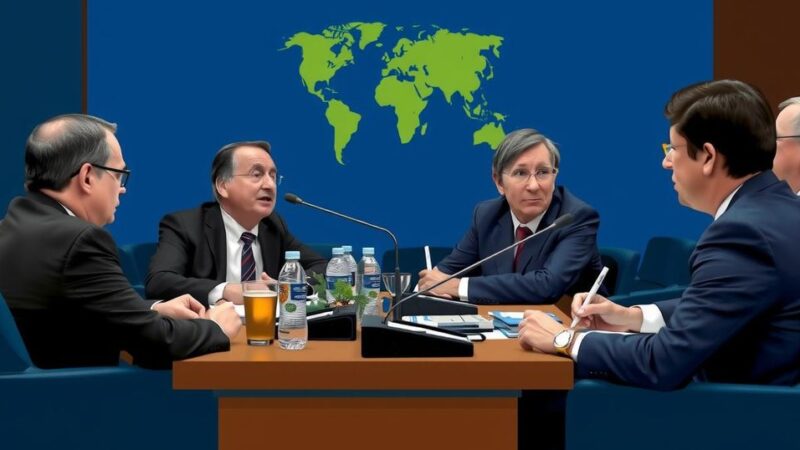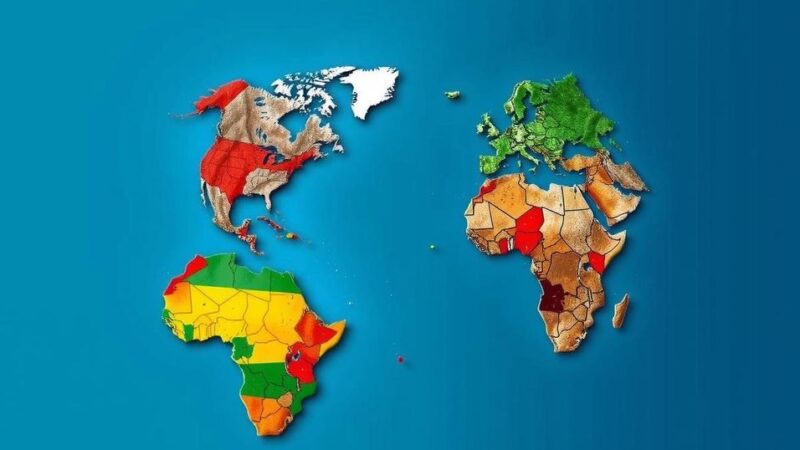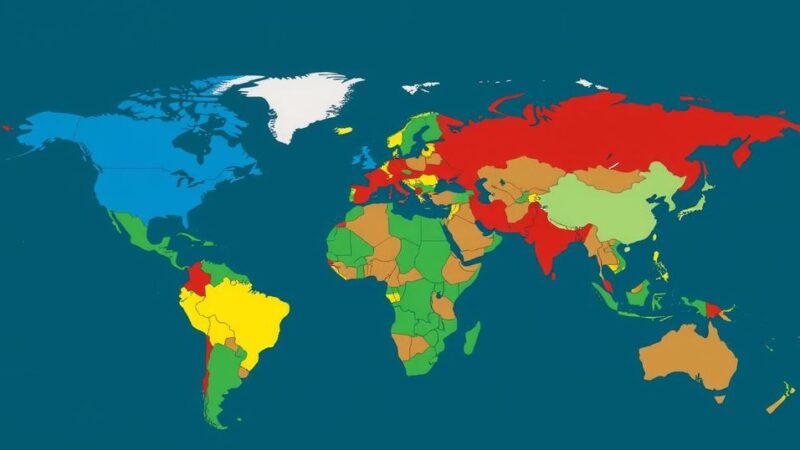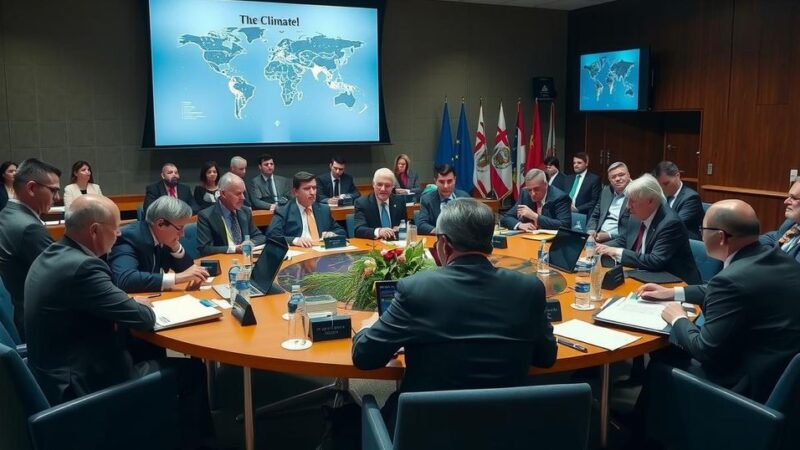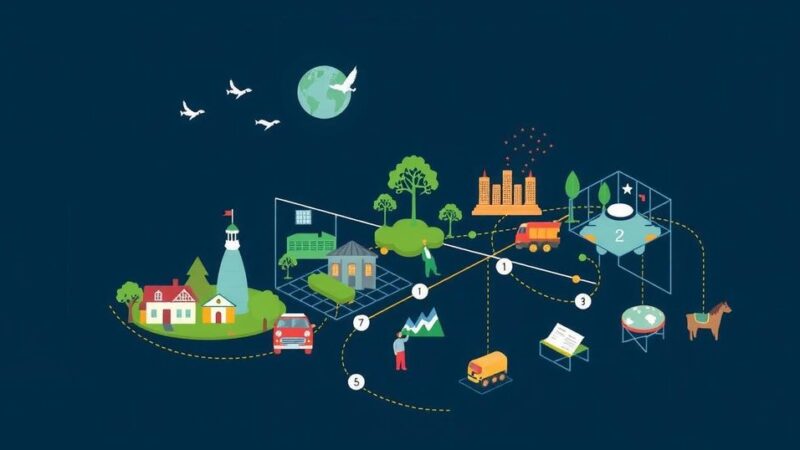The WMO reports that severe wildfires have exacerbated the growth of greenhouse gas emissions, with carbon dioxide reaching levels not seen in millions of years. The continuous emission of carbon from fossil fuels and industrial activities is outpacing natural absorption, highlighting the critical challenges that climate negotiations will aim to address.
The United Nations weather agency has issued a warning regarding the rapid accumulation of greenhouse gases in the atmosphere, particularly amidst severe wildfires that occurred last year. This situation presents a potential feedback loop as average global temperatures continue to rise. The latest figures from the World Meteorological Organization (WMO) reveal that carbon dioxide levels have reached concentrations not seen in 2 to 3 million years, correlating with significantly higher average temperatures and elevated sea levels at that time. Despite efforts to manage emissions from fossil fuels and cement production, these continue to enter the atmosphere at a pace that surpasses the natural absorption capacity of oceans and forests. The consequences of such unmitigated emissions are profound, with lasting impacts on the greenhouse effect. Ko Barrett, Deputy Secretary-General of the WMO, emphasized that even minimal rises in temperature have significant implications for glacial and ice melts, sea-level rise, and the frequency of extreme heat events. These changes threaten biodiversity, ecosystems, and global economies. As the international community prepares for the upcoming 29th U.N. climate negotiations in Azerbaijan, concerns mount regarding the host nation’s authoritarian governance and heavy reliance on fossil fuel exports. Furthermore, climate scientists warn that the ongoing dependence on fossil fuels today could lock in more severe climate impacts for the future, as average global temperatures have already increased by approximately 1.2 degrees Celsius. The WMO’s bulletin also highlighted that 2023 has seen Canada and Australia facing extreme wildfires that contribute to persistently high carbon dioxide emissions. The organization noted a potential decrease in forest carbon absorption due to the climatic shift from La Niña to El Niño, which typically results in higher temperatures reducing plant absorption rates. Consequently, carbon dioxide concentrations have reached 420 parts per million in 2023, marking the twelfth consecutive year of significant increases. This surge is unprecedented in human history, posing the risk of intensified climate feedback mechanisms where wildfires and warmer oceans could further elevate atmospheric carbon levels, exacerbating global warming. The WMO underlined the critical nature of these feedback loops, stressing their potential impact on societies worldwide.
The article addresses the alarming trends in greenhouse gas emissions and their implications for global climate change, particularly in light of severe environmental events such as wildfires. As international climate negotiations approach, these findings underline the necessity for global cooperation and immediate action to mitigate the impacts of climate change fueled by human activities.
In summary, the ongoing rise in greenhouse gas emissions, notably carbon dioxide, poses significant risks to the planet, contributing to the acceleration of global warming and its adverse effects on weather patterns, sea levels, and biodiversity. Such developments highlight the urgent need for concerted global efforts to manage emissions and mitigate climate change consequences, especially as forthcoming climate talks aim to address these critical issues.
Original Source: www.benarnews.org
